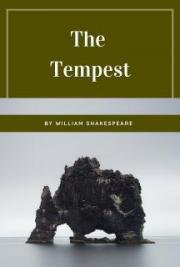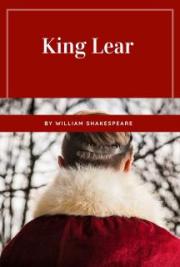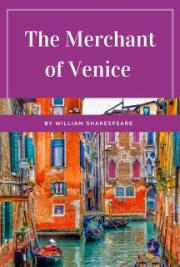
A Midsummer Night's Dream
Shakespeare, William
Published: 1596
Categorie(s): Fiction, Drama, Romance
Source: http://shakespeare.mit.edu/
1
About Shakespeare:
William Shakespeare (baptised 26 April 1564 – died 23 April 1616) was an English poet and playwright, widely regarded as the greatest writer in the English language and the world's pre-eminent dramatist. He is often called England's national poet and the "Bard of Avon" (or simply
"The Bard"). His surviving works consist of 38 plays, 154 sonnets, two long narrative poems, and several other poems. His plays have been translated into every major living language, and are performed more often than those of any other playwright. Shakespeare was born and raised in Stratford-upon-Avon. At the age of 18 he married Anne Hathaway, who bore him three children: Susanna, and twins Hamnet and Judith.
Between 1585 and 1592 he began a successful career in London as an actor, writer, and part owner of the playing company the Lord Chamberlain's Men, later known as the King's Men. He appears to have retired to Stratford around 1613, where he died three years later. Few records of Shakespeare's private life survive, and there has been consider-able speculation about such matters as his sexuality, religious beliefs, and whether the works attributed to him were written by others.
Shakespeare produced most of his known work between 1590 and 1613.
His early plays were mainly comedies and histories, genres he raised to the peak of sophistication and artistry by the end of the sixteenth century. Next he wrote mainly tragedies until about 1608, including Hamlet, King Lear, and Macbeth, considered some of the finest examples in the English language. In his last phase, he wrote tragicomedies, also known as romances, and collaborated with other playwrights. Many of his plays were published in editions of varying quality and accuracy during his lifetime, and in 1623 two of his former theatrical colleagues published the First Folio, a collected edition of his dramatic works that included all but two of the plays now recognised as Shakespeare's. Shakespeare was a respected poet and playwright in his own day, but his reputation did not rise to its present heights until the nineteenth century. The Romantics, in particular, acclaimed Shakespeare's genius, and the Victorians hero-worshipped Shakespeare with a reverence that George Bernard Shaw called "bardolatry". In the twentieth century, his work was repeatedly adopted and rediscovered by new movements in scholarship and performance. His plays remain highly popular today and are con-sistently performed and reinterpreted in diverse cultural and political contexts throughout the world. Source: Wikipedia Also available on Feedbooks for Shakespeare: 2
• Romeo and Juliet (1597)
• Hamlet (1599)
• Macbeth (1606)
• Julius Caesar (1599)
• Othello (1603)
• The Merchant of Venice (1598)
• Much Ado About Nothing (1600)
• King Lear (1606)
• The Taming of the Shrew (1594)
• The Comedy of Errors (1594) Note: This book is brought to you by Feedbooks
http://www.feedbooks.com
Strictly for personal use, do not use this file for commercial purposes.
3
Act I
SCENE I. Athens. The palace of THESEUS.
Enter THESEUS, HIPPOLYTA, PHILOSTRATE, and Attendants THESEUS
Now, fair Hippolyta, our nuptial hour
Draws on apace; four happy days bring in
Another moon: but, O, methinks, how slow
This old moon wanes! she lingers my desires,
Like to a step-dame or a dowager
Long withering out a young man revenue.
HIPPOLYTA
Four days will quickly steep themselves in night; Four nights will quickly dream away the time;
And then the moon, like to a silver bow
New-bent in heaven, shall behold the night
Of our solemnities.
THESEUS
Go, Philostrate,
Stir up the Athenian youth to merriments;
Awake the pert and nimble spirit of mirth;
Turn melancholy forth to funerals;
The pale companion is not for our pomp.
Exit PHILOSTRATE
Hippolyta, I woo'd thee with my sword,
And won thy love, doing thee injuries;
But I will wed thee in another key,
With pomp, with triumph and with revelling.
Enter EGEUS, HERMIA, LYSANDER, and DEMETRIUS
EGEUS
Happy be Theseus, our renowned duke!
4
THESEUS
Thanks, good Egeus: what's the news with thee?
EGEUS
Full of vexation come I, with complaint
Against my child, my daughter Hermia.
Stand forth, Demetrius. My noble lord,
This man hath my consent to marry her.
Stand forth, Lysander: and my gracious duke,
This man hath bewitch'd the bosom of my child;
Thou, thou, Lysander, thou hast given her rhymes, And interchanged love-tokens with my child:
Thou hast by moonlight at her window sung,
With feigning voice verses of feigning love,
And stolen the impression of her fantasy
With bracelets of thy hair, rings, gawds, conceits, Knacks, trifles, nosegays, sweetmeats, messengers Of strong prevailment in unharden'd youth:
With cunning hast thou filch'd my daughter's heart, Turn'd her obedience, which is due to me,
To stubborn harshness: and, my gracious duke,
Be it so she; will not here before your grace
Consent to marry with Demetrius,
I beg the ancient privilege of Athens,
As she is mine, I may dispose of her:
Which shall be either to this gentleman
Or to her death, according to our law
Immediately provided in that case.
THESEUS
What say you, Hermia? be advised fair maid:
To you your father should be as a god;
One that composed your beauties, yea, and one
To whom you are but as a form in wax
By him imprinted and within his power
To leave the figure or disfigure it.
Demetrius is a worthy gentleman.
5
HERMIA
So is Lysander.
THESEUS
In himself he is;
But in this kind, wanting your father's voice,
The other must be held the worthier.
HERMIA
I would my father look'd but with my eyes.
THESEUS
Rather your eyes must with his judgment look.
HERMIA
I do entreat your grace to pardon me.
I know not by what power I am made bold,
Nor how it may concern my modesty,
In such a presence here to plead my thoughts;
But I beseech your grace that I may know
The worst that may befall me in this case,
If I refuse to wed Demetrius.
THESEUS
Either to die the death or to abjure
For ever the society of men.
Therefore, fair Hermia, question your desires;
Know of your youth, examine well your blood,
Whether, if you yield not to your father's choice, You can endure the livery of a nun,
For aye to be in shady cloister mew'd,
To live a barren sister all your life,
Chanting faint hymns to the cold fruitless moon.
Thrice-blessed they that master so their blood, To undergo such maiden pilgrimage;
6
But earthlier happy is the rose distill'd,
Than that which withering on the virgin thorn
Grows, lives and dies in single blessedness.
HERMIA
So will I grow, so live, so die, my lord,
Ere I will my virgin patent up
Unto his lordship, whose unwished yoke
My soul consents not to give sovereignty.
THESEUS
Take time to pause; and, by the nest new moon—
The sealing-day betwixt my love and me,
For everlasting bond of fellowship—
Upon that day either prepare to die
For disobedience to your father's will,
Or else to wed Demetrius, as he would;
Or on Diana's altar to protest
For aye austerity and single life.
DEMETRIUS
Relent, sweet Hermia: and, Lysander, yield
Thy crazed title to my certain right.
LYSANDER
You have her father's love, Demetrius;
Let me have Hermia's: do you marry him.
EGEUS
Scornful Lysander! true, he hath my love,
And what is mine my love shall render him.
And she is mine, and all my right of her
I do estate unto Demetrius.
LYSANDER
7
I am, my lord, as well derived as he,
As well possess'd; my love is more than his;
My fortunes every way as fairly rank'd,
If not with vantage, as Demetrius';
And, which is more than all these boasts can be, I am beloved of beauteous Hermia:
Why should not I then prosecute my right?
Demetrius, I'll avouch it to his head,
Made love to Nedar's daughter, Helena,
And won her soul; and she, sweet lady, dotes,
Devoutly dotes, dotes in idolatry,
Upon this spotted and inconstant man.
THESEUS
I must confess that I have heard so much,
And with Demetrius thought to have spoke thereof; But, being over-full of self-affairs,
My mind did lose it. But, Demetrius, come;
And come, Egeus; you shall go with me,
I have some private schooling for you both.
For you, fair Hermia, look you arm yourself
To fit your fancies to your father's will;
Or else the law of Athens yields you up—
Which by no means we may extenuate—
To death, or to a vow of single life.
Come, my Hippolyta: what cheer, my love?
Demetrius and Egeus, go along:
I must employ you in some business
Against our nuptial and confer with you
Of something nearly that concerns yourselves.
EGEUS
With duty and desire we follow you.
Exeunt all but LYSANDER and HERMIA
LYSANDER
How now, my love! why is your cheek so pale?
How chance the roses there do fade so fast?
8
HERMIA
Belike for want of rain, which I could well
Beteem them from the tempest of my eyes.
LYSANDER
Ay me! for aught that I could ever read,
Could ever hear by tale or history,
The course of true love never did run smooth;
But, either it was different in blood,—
HERMIA
O cross! too high to be enthrall'd to low.
LYSANDER
Or else misgraffed in respect of years,—
HERMIA
O spite! too old to be engaged to young.
LYSANDER
Or else it stood upon the choice of friends,—
HERMIA
O hell! to choose love by another's eyes.
LYSANDER
Or, if there were a sympathy in choice,
War, death, or sickness did lay siege to it,
Making it momentany as a sound,
Swift as a shadow, short as any dream;
Brief as the lightning in the collied night,
That, in a spleen, unfolds both heaven and earth, And ere a man hath power to say 'Behold!'
9
The jaws of darkness do devour it up:
So quick bright things come to confusion.
HERMIA
If then true lovers have been ever cross'd,
It stands as an edict in destiny:
Then let us teach our trial patience,
Because it is a customary cross,
As due to love as thoughts and dreams and sighs, Wishes and tears, poor fancy's followers.
LYSANDER
A good persuasion: therefore, hear me, Hermia.
I have a widow aunt, a dowager
Of great revenue, and she hath no child:
From Athens is her house remote seven leagues;
And she respects me as her only son.
There, gentle Hermia, may I marry thee;
And to that place the sharp Athenian law
Cannot pursue us. If thou lovest me then,
Steal forth thy father's house to-morrow night; And in the wood, a league without the town,
Where I did meet thee once with Helena,
To do observance to a morn of May,
There will I stay for thee.
HERMIA
My good Lysander!
I swear to thee, by Cupid's strongest bow,
By his best arrow with the golden head,
By the simplicity of Venus' doves,
By that which knitteth souls and prospers loves, And by that fire which burn'd the Carthage queen, When the false Troyan under sail was seen,
By all the vows that ever men have broke,
In number more than ever women spoke,
In that same place thou hast appointed me,
To-morrow truly will I meet with thee.
10
LYSANDER
Keep promise, love. Look, here comes Helena.
Enter HELENA
HERMIA
God speed fair Helena! whither away?
HELENA
Call you me fair? that fair again unsay.
Demetrius loves your fair: O happy fair!
Your eyes are lode-stars; and your tongue's sweet air More tuneable than lark to shepherd's ear,
When wheat is green, when hawthorn buds appear.
Sickness is catching: O, were favour so,
Yours would I catch, fair Hermia, ere I go;
My ear should catch your voice, my eye your eye, My tongue should catch your tongue's sweet melody.
Were the world mine, Demetrius being bated,
The rest I'd give to be to you translated.
O, teach me how you look, and with what art
You sway the motion of Demetrius' heart.
HERMIA
I frown upon him, yet he loves me still.
HELENA
O that your frowns would teach my smiles such skill!
HERMIA
I give him curses, yet he gives me love.
HELENA
O that my prayers could such affection move!
11
HERMIA
The more I hate, the more he follows me.
HELENA
The more I love, the more he hateth me.
HERMIA
His folly, Helena, is no fault of mine.
HELENA
None, but your beauty: would that fault were mine!
HERMIA
Take comfort: he no more shall see my face;
Lysander and myself will fly this place.
Before the time I did Lysander see,
Seem'd Athens as a paradise to me:
O, then, what graces in my love do dwell,
That he hath turn'd a heaven unto a hell!
LYSANDER
Helen, to you our minds we will unfold:
To-morrow night, when Phoebe doth behold
Her silver visage in the watery glass,
Decking with liquid pearl the bladed grass,
A time that lovers' flights doth still conceal, Through Athens' gates have we devised to steal.
HERMIA
And in the wood, where often you and I
Upon faint primrose-beds were wont to lie,
Emptying our bosoms of their counsel sweet,
There my Lysander and myself shall meet;
And thence from Athens turn away our eyes,
12
To seek new friends and stranger companies.
Farewell, sweet playfellow: pray thou for us;
And good luck grant thee thy Demetrius!
Keep word, Lysander: we must starve our sight
From lovers' food till morrow deep midnight.
LYSANDER
I will, my Hermia.
Exit HERMIA
Helena, adieu:
As you on him, Demetrius dote on you!
Exit
HELENA
How happy some o'er other some can be!
Through Athens I am thought as fair as she.
But what of that? Demetrius thinks not so;
He will not know what all but he do know:
And as he errs, doting on Hermia's eyes,
So I, admiring of his qualities:
Things base and vile, folding no quantity,
Love can transpose to form and dignity:
Love looks not with the eyes, but with the mind; And therefore is wing'd Cupid painted blind:
Nor hath Love's mind of any judgement taste;
Wings and no eyes figure unheedy haste:
And therefore is Love said to be a child,
Because in choice he is so oft beguiled.
As waggish boys in game themselves forswear,
So the boy Love is perjured every where:
For ere Demetrius look'd on Hermia's eyne,
He hail'd down oaths that he was only mine;
And when this hail some heat from Hermia felt,
So he dissolved, and showers of oaths did melt.
I will go tell him of fair Hermia's flight:
Then to the wood will he to-morrow night
Pursue her; and for this intelligence
If I have thanks, it is a dear expense:
13
But herein mean I to enrich my pain,
To have his sight thither and back again.
Exit
14
SCENE II. Athens. QUINCE'S house.
Enter QUINCE, SNUG, BOTTOM, FLUTE, SNOUT, and STARVELING
QUINCE
Is all our company here?
BOTTOM
You were best to call them generally, man by man, according to the scrip.
QUINCE
Here is the scroll of every man's name, which is thought fit, through all Athens, to play in our interlude before the duke and the duchess, on his wedding-day at night.
BOTTOM
First, good Peter Quince, say what the play treats on, then read the names of the actors, and so grow to a point.
QUINCE
Marry, our play is, The most lamentable comedy, and most cruel death of Pyramus and Thisby.
BOTTOM
A very good piece of work, I assure you, and a
merry. Now, good Peter Quince, call forth your
actors by the scroll. Masters, spread yourselves.
QUINCE
Answer as I call you. Nick Bottom, the weaver.
15
BOTTOM
Ready. Name what part I am for, and proceed.
QUINCE
You, Nick Bottom, are set down for Pyramus.
BOTTOM
What is Pyramus? a lover, or a tyrant?
QUINCE
A lover, that kills himself most gallant for love.
BOTTOM
That will ask some tears in the true performing of it: if I do it, let the audience look to their
eyes; I will move storms, I will condole in some measure. To the rest: yet my chief humour is for a tyrant: I could play Ercles rarely, or a part to tear a cat in, to make all split.
The raging rocks
And shivering shocks
Shall break the locks
Of prison gates;
And Phibbus' car
Shall shine from far
And make and mar
The foolish Fates.
This was lofty! Now name the rest of the players.
This is Ercles' vein, a tyrant's vein; a lover is more condoling.
QUINCE
Francis Flute, the bellows-mender.
FLUTE
16
Here, Peter Quince.
QUINCE
Flute, you must take Thisby on you.
FLUTE
What is Thisby? a wandering knight?
QUINCE
It is the lady that Pyramus must love.
FLUTE
Nay, faith, let me not play a woman; I have a beard coming.
QUINCE
That's all one: you shall play it in a mask, and you may speak as small as you will.
BOTTOM
An I may hide my face, let me play Thisby too, I'll speak in a monstrous little voice. 'Thisne,
Thisne;' 'Ah, Pyramus, lover dear! thy Thisby dear, and lady dear!'
QUINCE
No, no; you must play Pyramus: and, Flute, you Thisby.
BOTTOM
Well, proceed.
QUINCE
Robin Starveling, the tailor.
17
STARVELING
Here, Peter Quince.
QUINCE
Robin Starveling, you must play Thisby's mother.
Tom Snout, the tinker.
SNOUT
Here, Peter Quince.
QUINCE
You, Pyramus' father: myself, Thisby's father:
Snug, the joiner; you, the lion's part: and, I
hope, here is a play fitted.
SNUG
Have you the lion's part written? pray you, if it be, give it me, for I am slow of study.
QUINCE
You may do it extempore, for it is nothing but roaring.
BOTTOM
Let me play the lion too: I will roar, that I will do any man's heart good to hear me; I will roar, that I will make the duke say 'Let him roar again, let him roar again.'
QUINCE
An you should do it too terribly, you would fright the duchess and the ladies, that they would shriek; and that were enough to hang us all.
18
ALL
That would hang us, every mother's son.
BOTTOM
I grant you, friends, if that you should fright the ladies out of their wits, they would have no more discretion but to hang us: but I will aggravate my voice so that I will roar you as gently as any
sucking dove; I will roar you an 'twere any
nightingale.
QUINCE
You can play no part but Pyramus; for Pyramus is a sweet-faced man; a proper man, as one shall see in a summer's day; a most lovely gentleman-like man: therefore you must needs play Pyramus.
BOTTOM
Well, I will undertake it. What beard were I best to play it in?
QUINCE
Why, what you will.
BOTTOM
I will discharge it in either your straw-colour beard, your orange-tawny beard, your purple-in-grain beard, or your French-crown-colour beard, your
perfect yellow.
QUINCE
Some of your French crowns have no hair at all, and then you will play bare-faced. But, masters, here are your parts: and I am to








